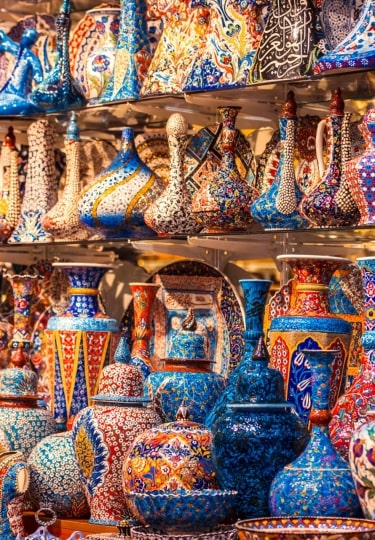Turkey, with its foothold in both Europe and Asia, has been a trade hub for many centuries. Between its ancient bazaars—Istanbul’s Grand Bazaar has 4,000 shops alone—and hundreds of modern shopping malls, it’s hard to choose the right Turkish souvenirs to bring home.
Handmade carpets, beautiful ceramics, soft leather… these are only some of the crafts on offer. Then there is the food, from delicious baklava, to organic honeys.
Beyond these well-known gifts for yourself or others, there is a deep reserve of well-crafted designer goods. From fashion clothing, and jewelry, to faithful copies of priceless ancient artifacts, they are beautiful just to look at.
Here is a guide to the best Turkish souvenirs to bring home.
Rugs & Carpets
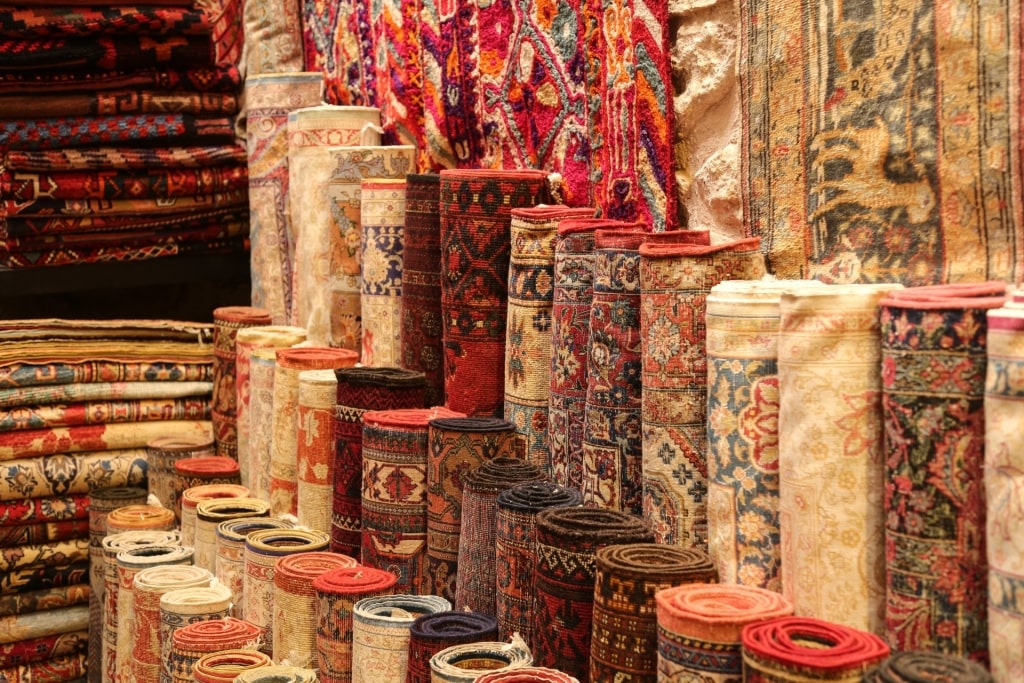
Carpets
The Turks have their origin in nomadic peoples, to whom the carpet was a portable prized possession. Marco Polo noted the quality of Anatolian carpets on his travels in 1272.
The history behind the designs and colors of these carpets is fascinating. A carpet factory tour is practically obligatory for any visitor, and well worth it to learn more.
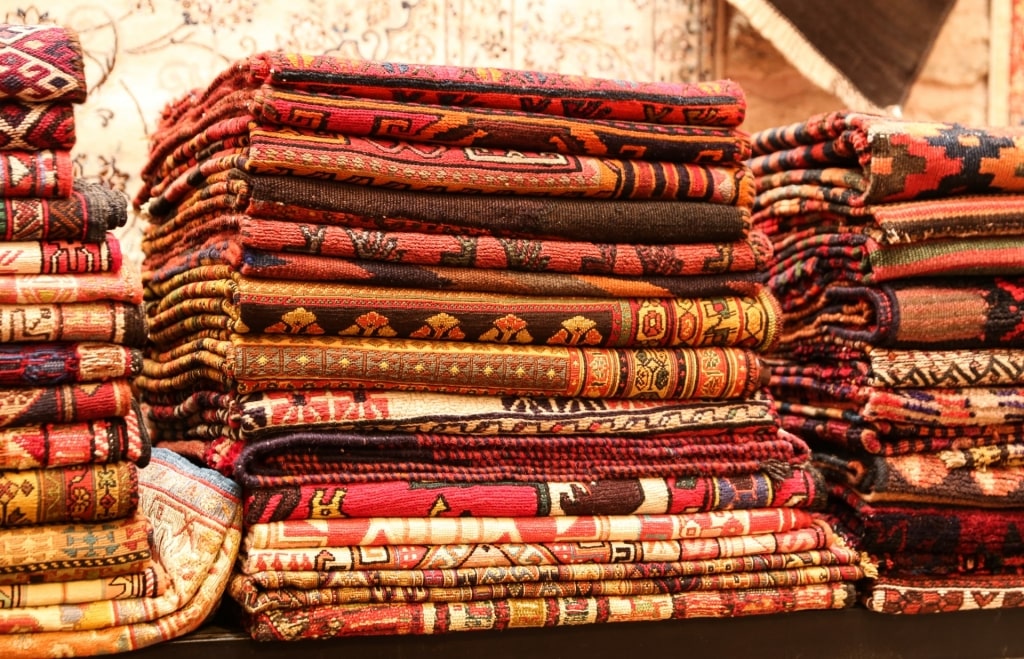
Rugs
One of the best places to visit in Istanbul, the Grand Bazaar remains a center for carpet sellers, although you will find them throughout the city. Whether a double-knotted, hand-made, silk carpet, or a colorful, machine-made, wool kelim, a floor covering makes a Turkish souvenir that will bring pleasure for many years to come.
Ceramics
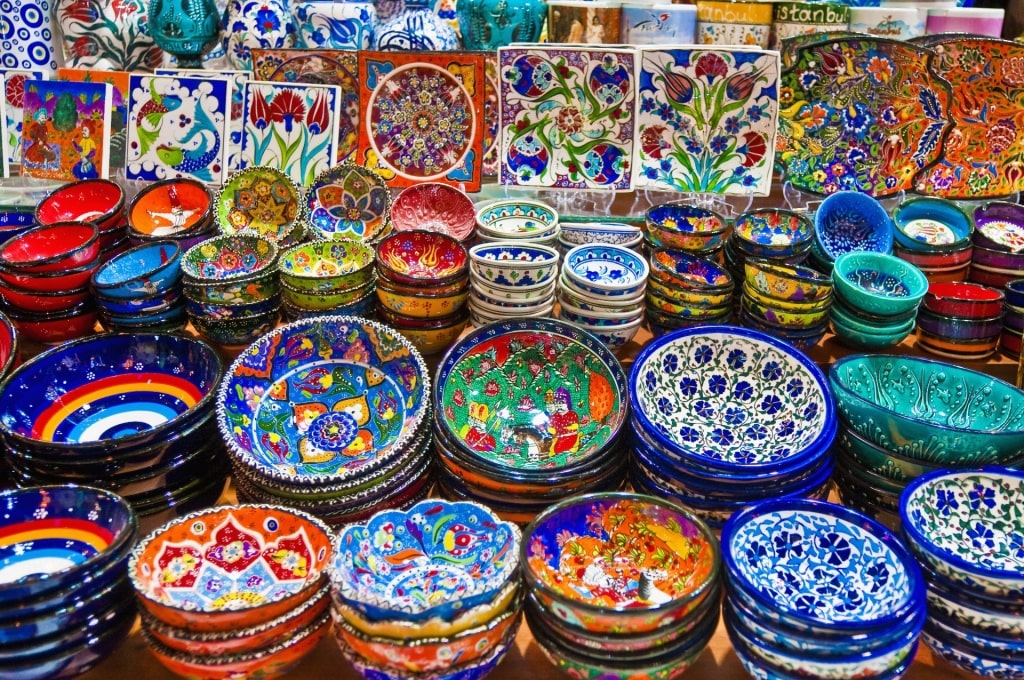
Ceramic bowls
The tiles that decorate every mosque in the medieval European city of Istanbul provide a sense of the long history and exquisite craftwork on Turkish tiles. The most famous are the hand-painted Iznik tiles whose production has been revived in recent decades.
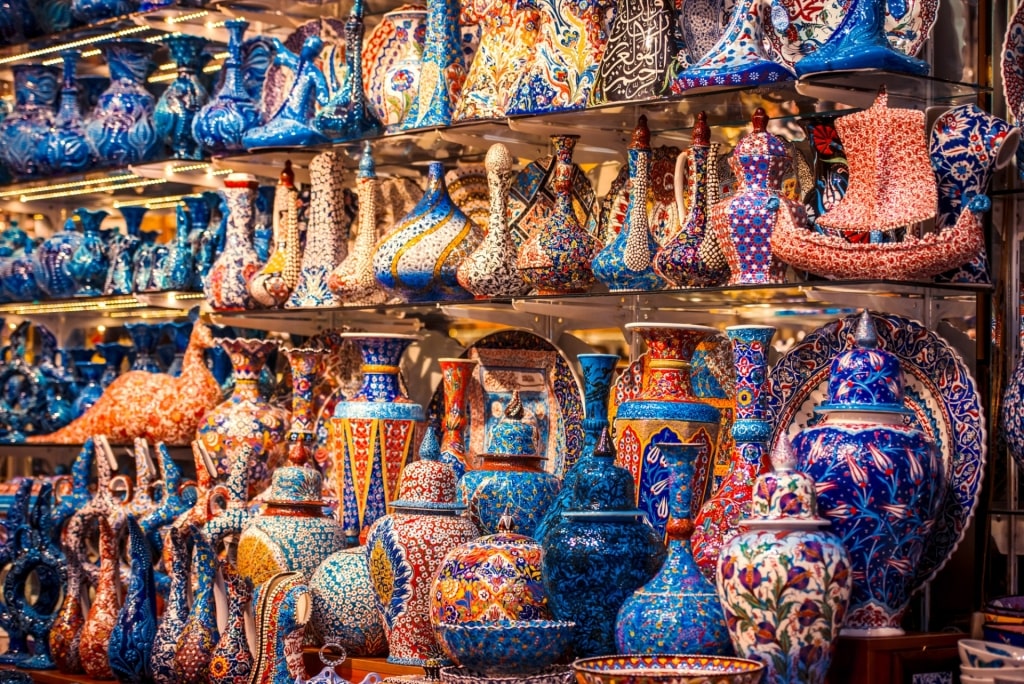
Ceramics
Whether you want a whole bathroom, a mosaic, bowls, pots, or just a few lovely tiles to hang on a wall, beautiful ceramics are some of the best souvenirs from Turkey. Turquoise, or the “Isnik blue” that gave the Blue Mosque its name, are the most popular colors.
If you are buying more than a few tiles or bowls, you may want to arrange shipping. All the major shops are well versed in the necessary arrangements.
Nazar Boncugu
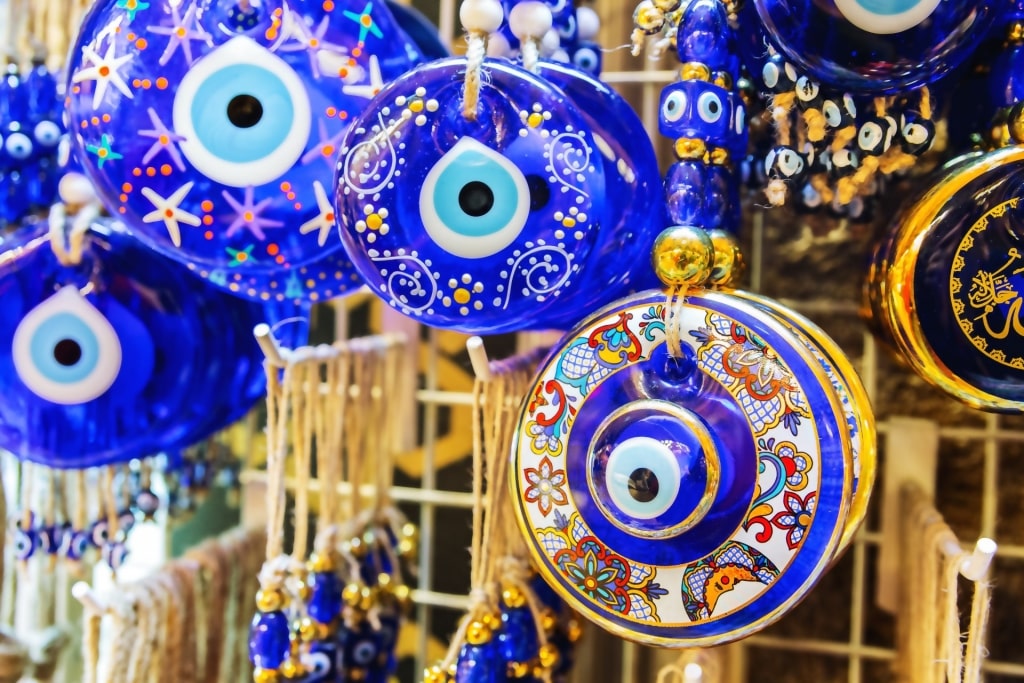
Nazar boncugu
Everywhere in Turkey, the nazar boncugu can be seen. Whether hanging inside a taxi window, or decorating the wall of a shop, café or restaurant, this blue talisman is a popular good luck charm.
Nazar boncugu translates as “eye bead” from Arabic and has a history thousands of years old. Handmade from glass, they make lovely pendants or decorations.
Prices range from a few dollars to much more valuable pieces of designer jewelry. You might not be superstitious yourself, but it’s a distinctive souvenir from Turkey.
Jewelry
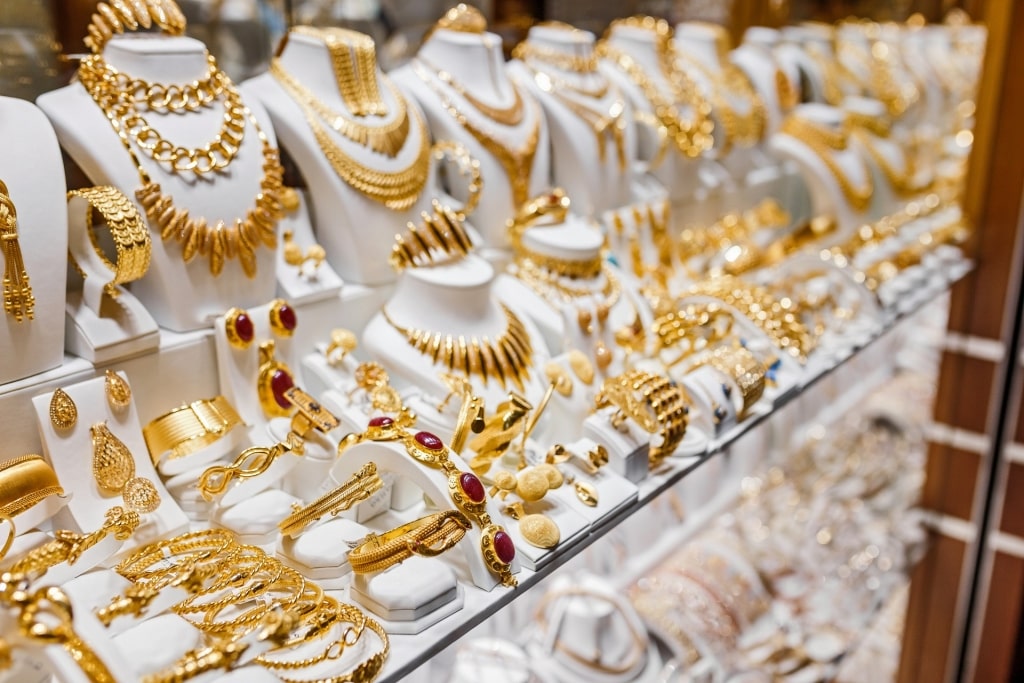
Jewelry
Whole areas of Turkey’s bazaars are dedicated to gold, as well as silver. The 50 or so jewelry shops in the Grand Bazaar are among the most notable, but there are also dedicated shops in the major Kuyumcukent jewelry production hub.
You’ll find everything from affordable rings to upmarket designer items. Look out for one-off modern designs by Turkish artists such as Nurdan Sen or Yesim Yuksek.
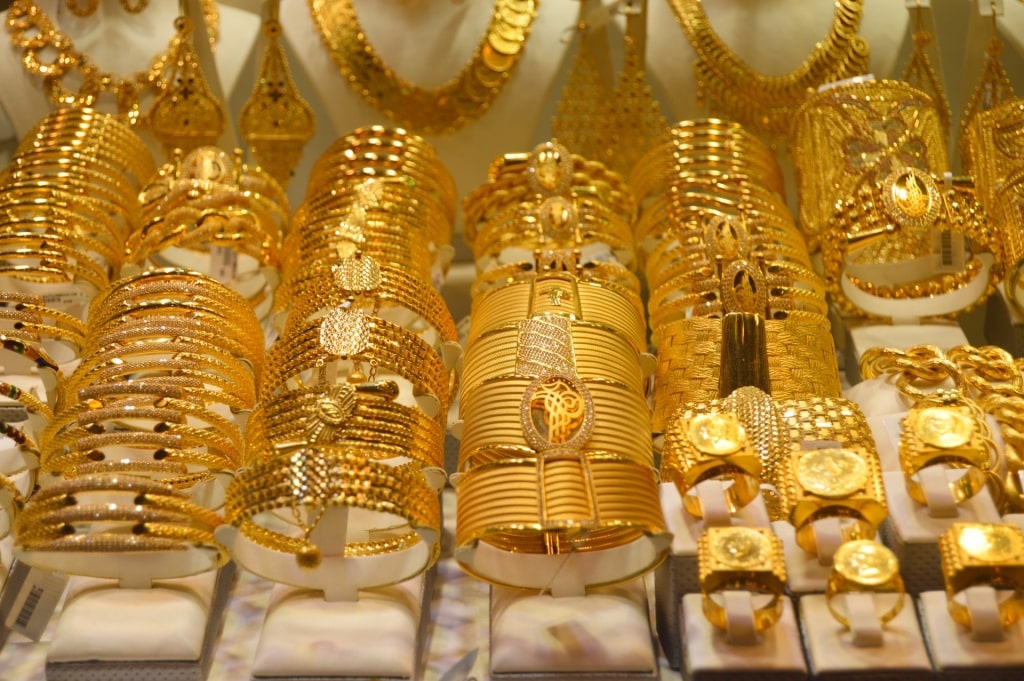
Jewelry
These designers have brought Turkey’s jewelry to another level. By fusing tradition with the new, precious metals with diamonds, and gemstones, they have created exquisite pieces that will make unique souvenirs.
Read: Best Shopping Cities in Europe
Haute Couture
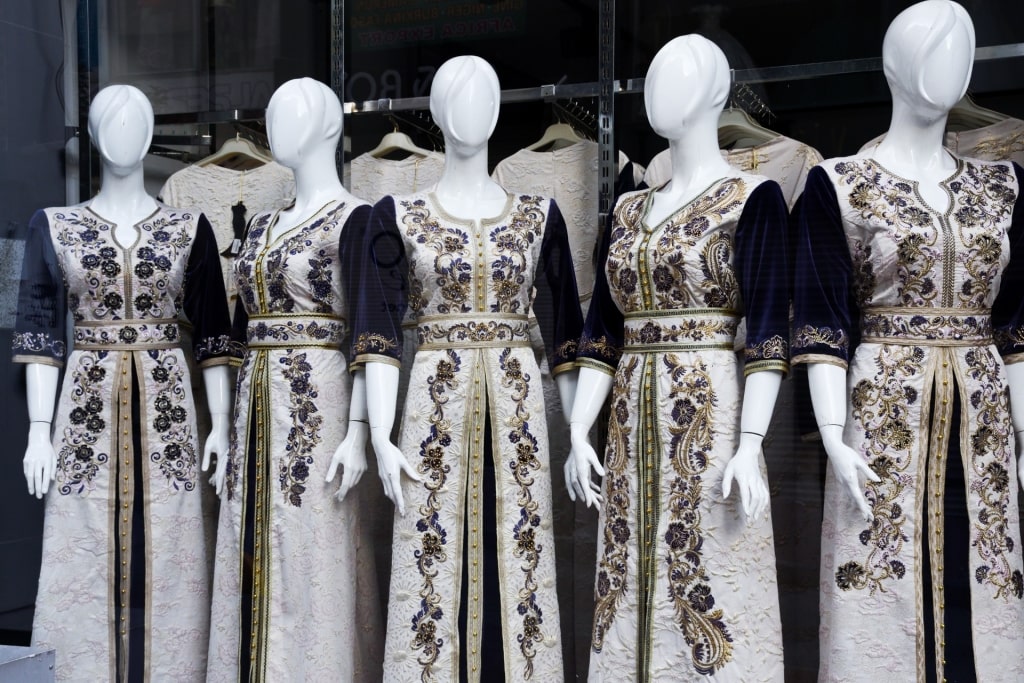
Haute couture
Thanks to Istanbul Fashion Week, Turkish designers have been showcased on the world stage. On the major shopping streets of Bağdat (Baghdad) Avenue on Istanbul’s Asian side, or Abdi İpekçi Avenue on the European side, you’ll find many thriving local labels.
Its split between two continents helps give Turkish fashion some interesting tensions. The depth and breadth, however, mean it is perhaps best described as “Mediterranean”.
Large local brands to look out for include Roman, Machka, Sarar, and (for men) Damat Tween. Smaller boutiques will throw up more unique fashion items for an even better souvenir.
Tea & Tea Set
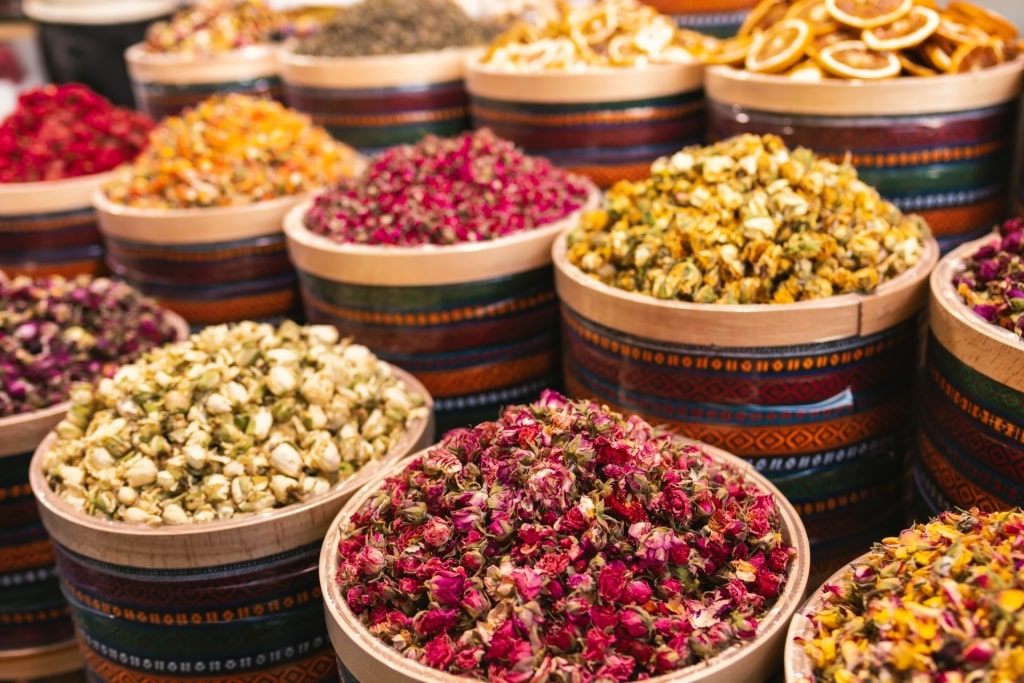
Tea
Turkey has the highest per capita consumption of tea in the world—even more than the UK. You won’t go far in a shop, home, or restaurant without being offered a cup—or three.
That’s a clue to how important the social interaction is to the ritual of tea drinking. The tea is served in small, tulip-shaped glasses whose unusual, and lovely, designs make for great souvenirs.
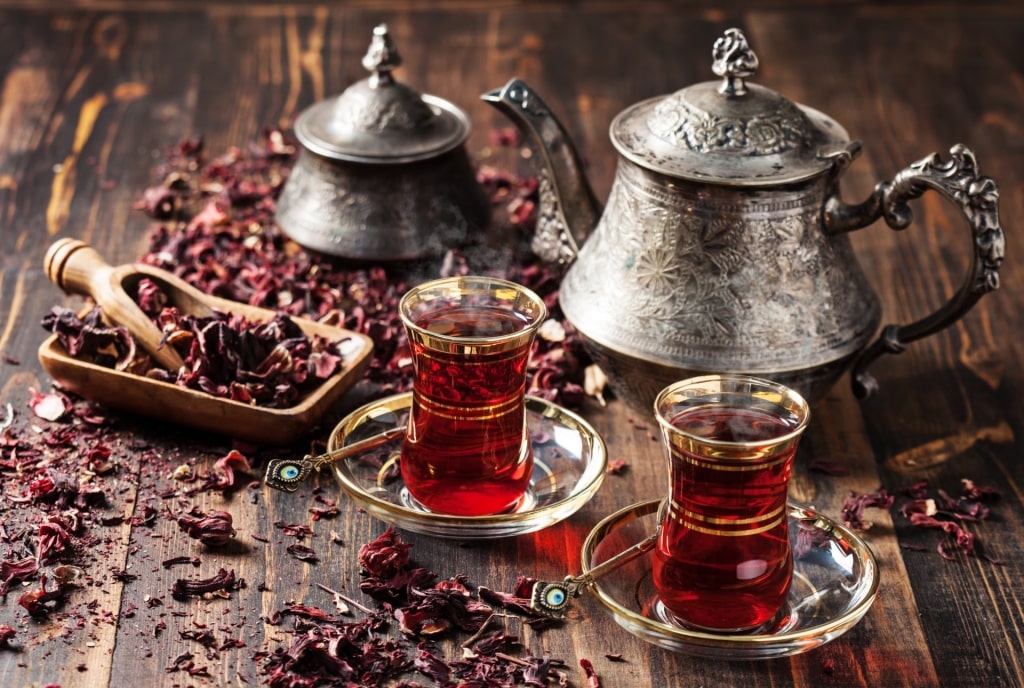
Tea set
Bringing home a tea set should hopefully also bring to mind many happy memories of your Turkish experience. Don’t forget the two-part Turkish tea pot (a çaydanlık), with the bottom part for hot water, and the upper for tea.
Turkish Coffee
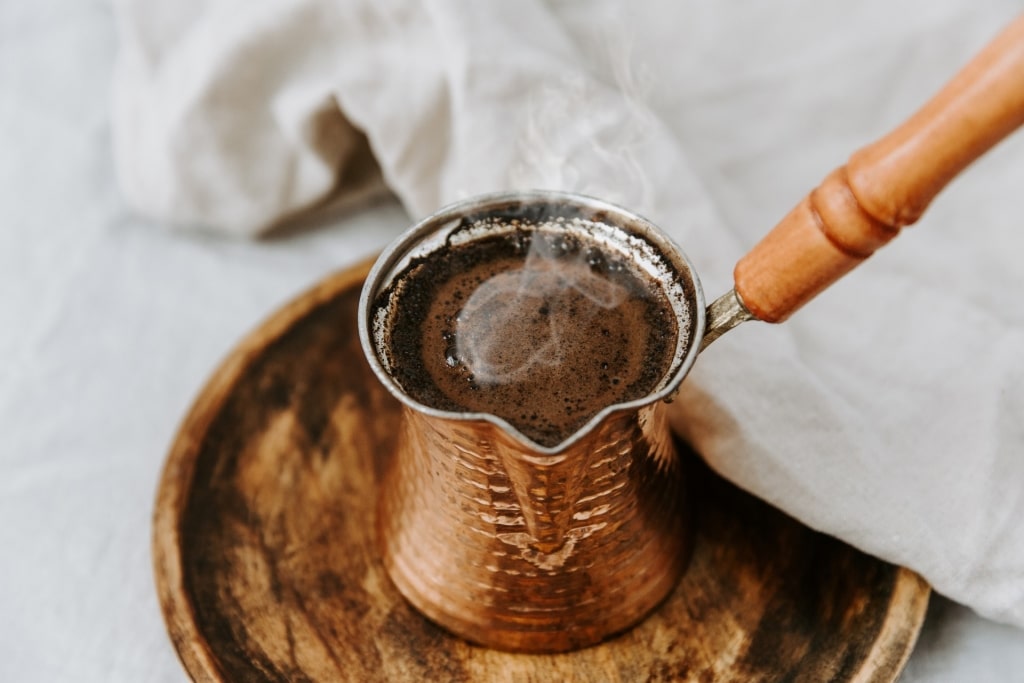
Turkish coffee
While the Turks are nowadays famous tea drinkers, their reputation for coffee was once even higher. The Ottoman Empire brought coffee to Europe in the 17th century.
The country does still export coffee, but six times more is imported. “Turkish” coffee really refers to the process of brewing roasted, finely-ground beans in a cezve, a small, open pot with a long handle.
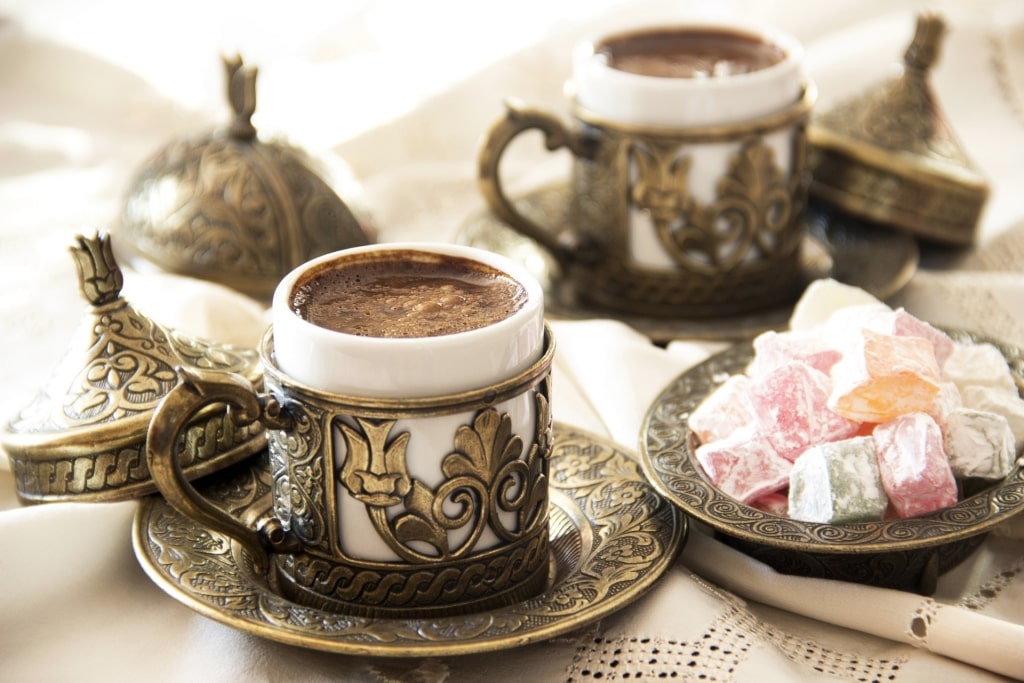
Turkish coffee
The coffee is served hot and very strong, so you might need to add sugar to soften the taste. A cezve, or a set of coffee cups, will remind you of that distinctive Turkey caffeine hit.
Turkish Delight
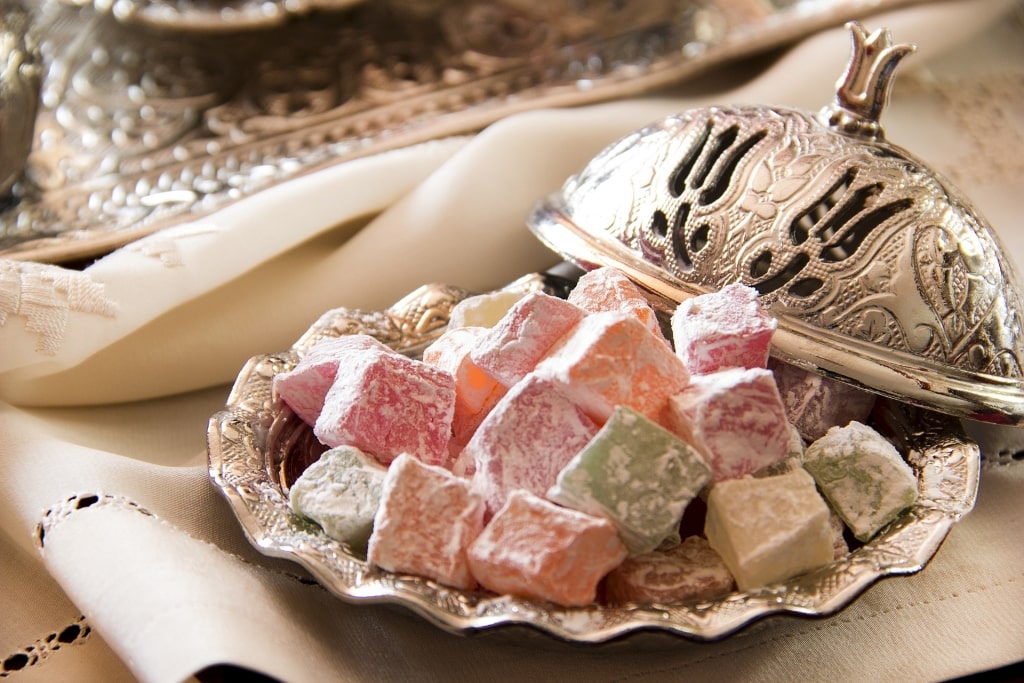
Turkish delight
Turkish Delight (“lokum”) in its home is a world away from the over-sweet confectionery you can find elsewhere in the world. It’s a much more subtle, complex, and melt-in-the-mouth experience.
Legend has it that lokum was invented for a sultan who wanted a way to keep his many wives happy. Be that as it may, it’s been praised—and devoured—by everyone from Napoleon to Picasso.
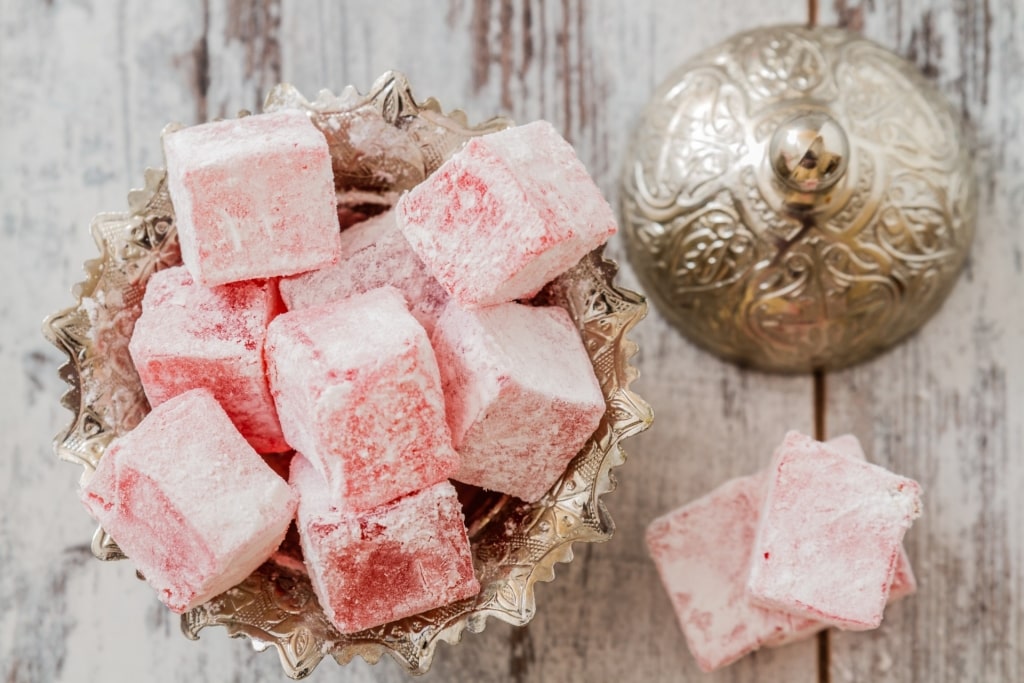
Rose-flavored Turkish delight
The traditional, and most popular, flavors remain rose, mint, and lemon. Most popular of all is a plain one with pistachio nuts, but all make great souvenirs if you want to bring a taste of Turkey home.
Spices
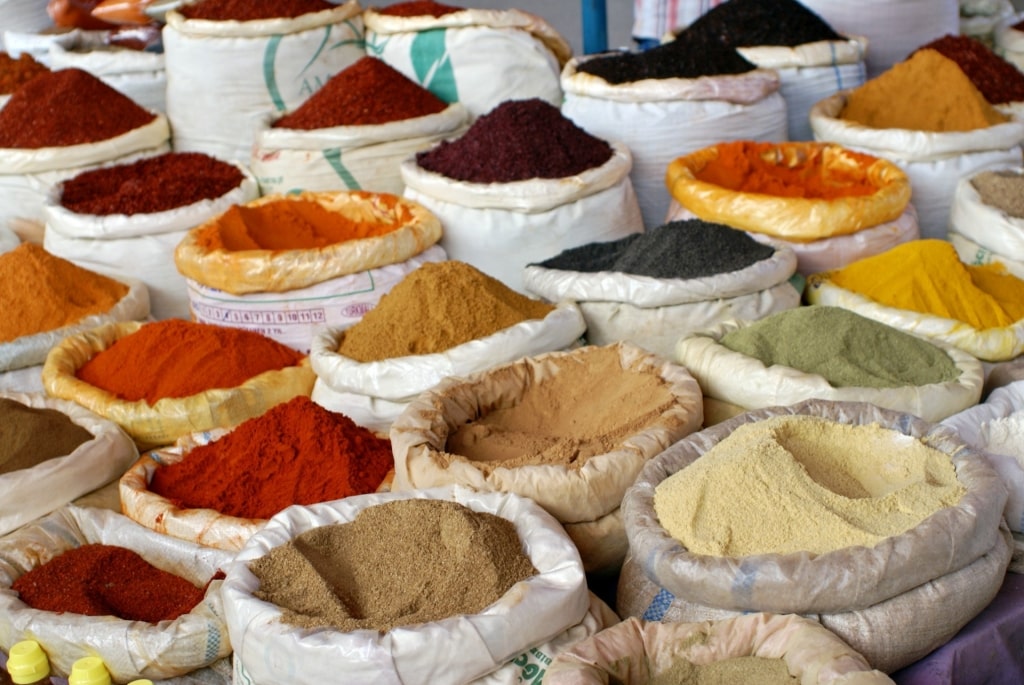
Spices
Lying on the Silk Road, Istanbul was also a major market for spices. It’s an ancient history recalled in its bazaars, where colorful spices still fill the air with their scent.
Istanbul’s Spice Bazaar (more properly, the Egyptian Bazaar) is the most famous. It has around 80 shops dedicated to spices, or such products as nuts, dried fruits, teas, and coffee.
You can buy whatever spice or herb takes your eye, or nose. The choice is made easier with selection packs of popular spices, but they might not be as fresh.
Soap
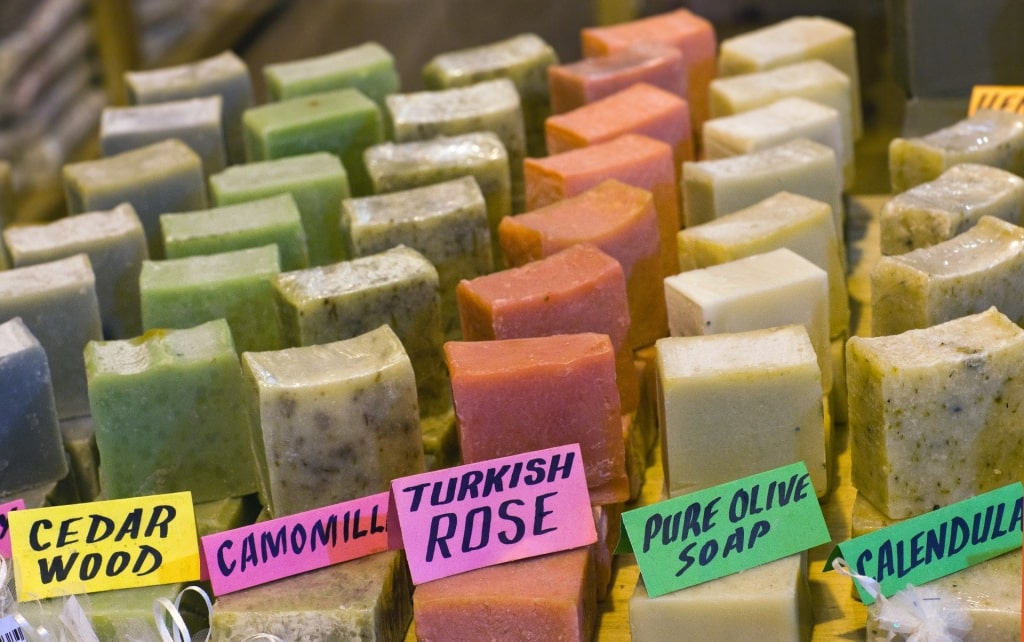
Soap
If you experience a hammam in Turkey, some handmade soaps will help take that Turkish bath sensation home. You’ll find them for sale in shops and supermarkets, many in lovely boxes that are a souvenir in themselves.
Hammam soaps are made from natural ingredients, usually with a base of olive oil. Aloe vera, or scents such as rose petals, are among the organic ingredients.
Artwork
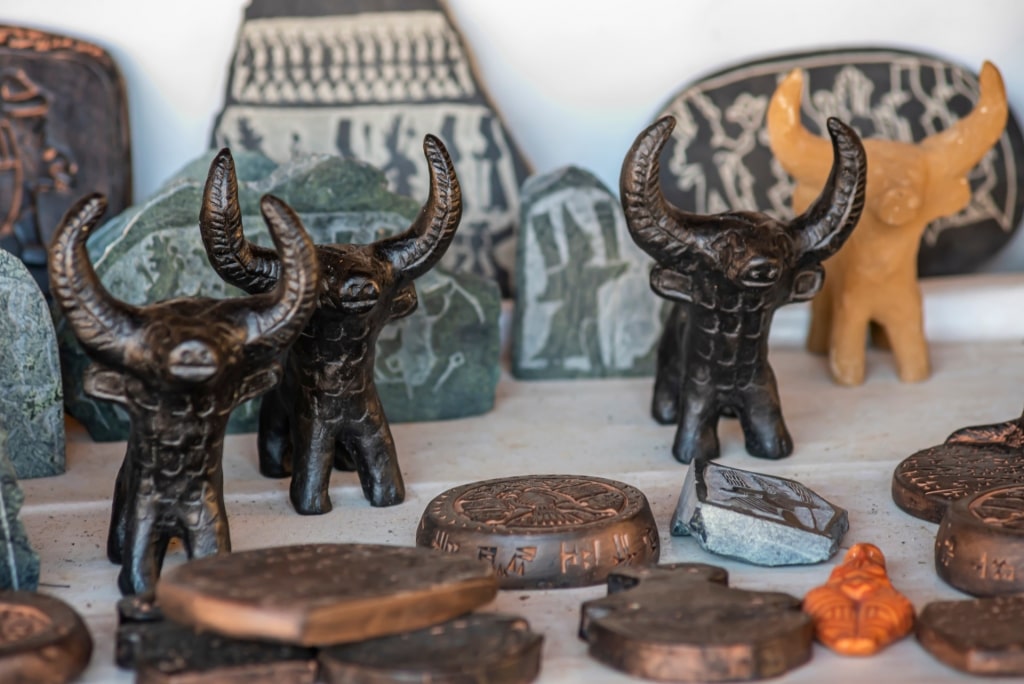
Artwork
Look in any museum, and you’ll see intricate artifacts made by skilled hands in centuries past. Fortunately, many of those skills have not been lost, giving you the chance to buy modern versions of those objects.
Whether it’s a replica of a prehistoric oil lamp, or a Roman figurine, you’ll find plenty of choices. Jewelry from the Topkapi Palace, or finely-worked daggers in Byzantine-style can all be recreated.
You will discover versions of such objects in many shops and bazaars. Old prints or art photography also make great souvenirs, while many art galleries have original art or sculpture for sale.
Traditional Instruments
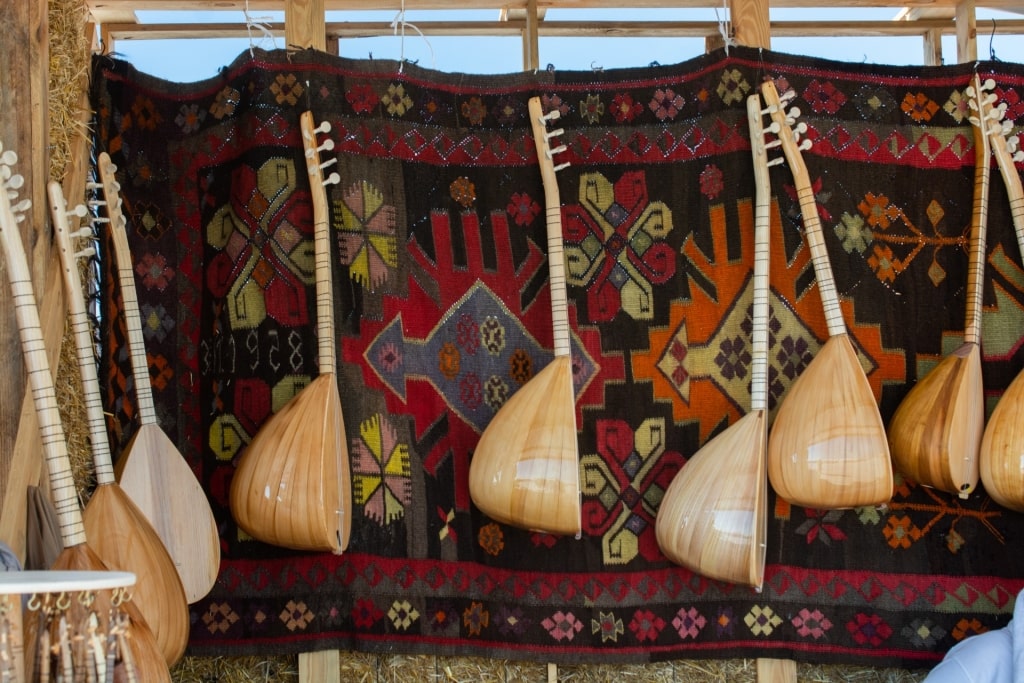
Baglama
Works of art in themselves, handmade Turkish musical instruments make great souvenirs even for those with no intention of ever playing them. Even better if you can strum a baglama (similar to guitar), or hit a note on a zurna (much like an oboe).
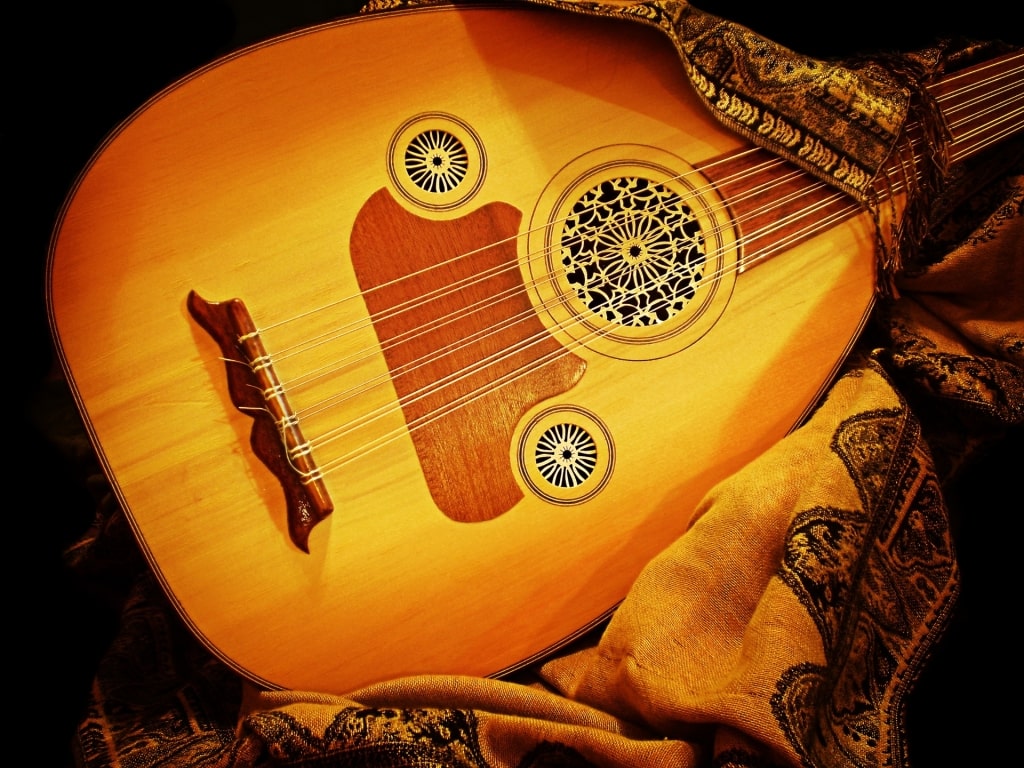
Oud
One of the most familiar is the oud, whose roots lie in the lute. And anyone can have fun with a davul (bass drum) or tea (tambourines).
The stringed instruments in particular are usually tuned very differently to western ones. In this era of online video learning, that’s much less of an issue than it once was.
Antiques
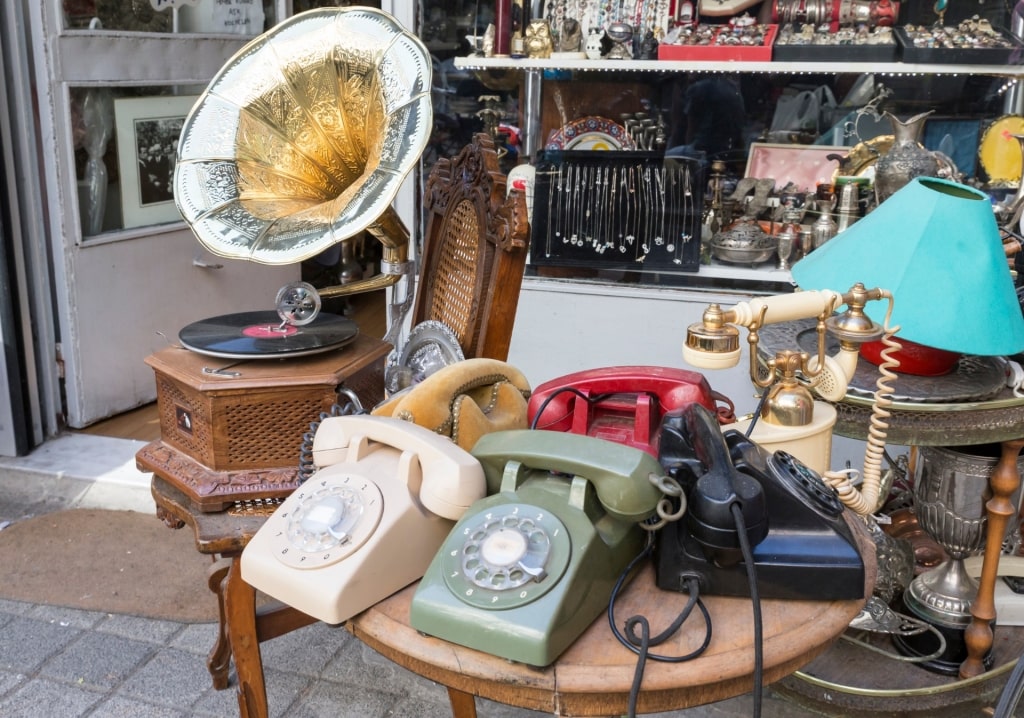
Antiques
With its 2,500-year history—it was Byzantium, then Constantinople—it’s no surprise Istanbul has plentiful antiques. A population of 15 million also throws up much in the way of interest.
Exporting antiquities (officially, objects more than 100 years old) needs a special license. But antique furnitures, prints, maps, carpets, or other objects are freely available in many specialist shops, especially in Istanbul’s Çukurcuma district.
Such shops will guide you through the export regulations, and certify the age of anything you buy. Be wary of buying anything from dealers or “guides” at archeological sites who offer no such guarantees.
Lanterns
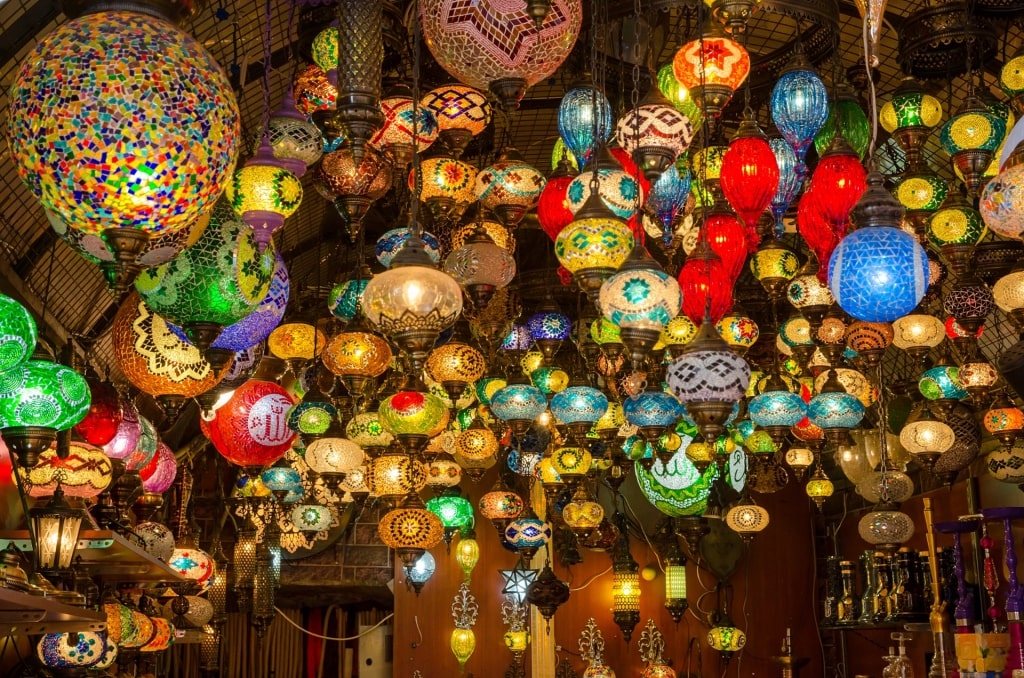
Lanterns
Mosaic glass lamps make a colorful spectacle in many shops as you walk in Turkey’s bazaars. They look even better when used to throw light or create mood in a room at home.
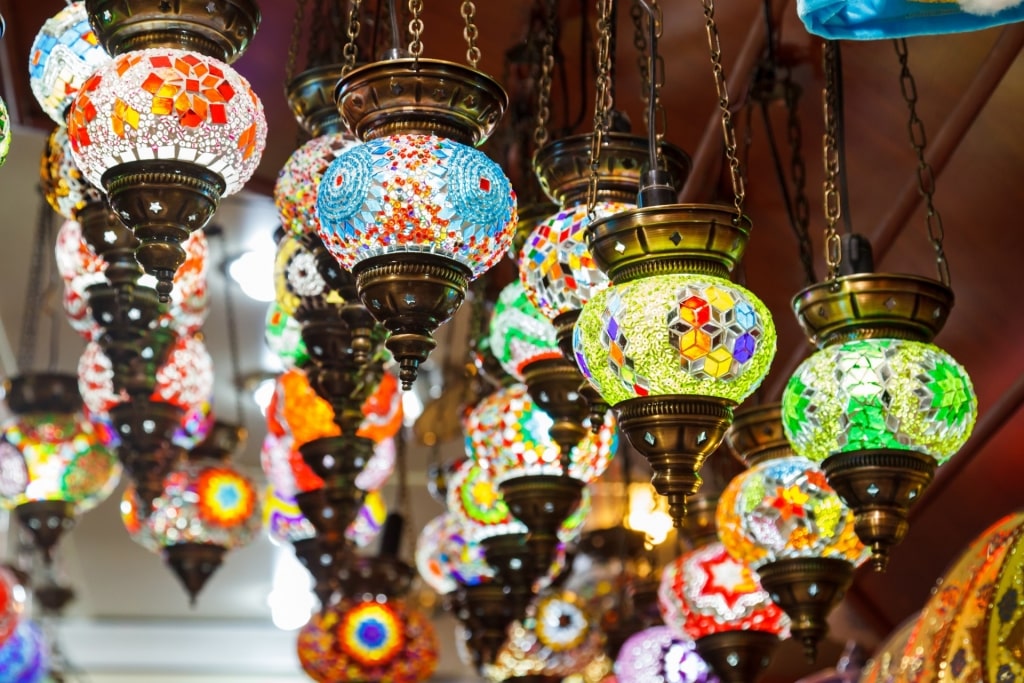
Lanterns
Still made by hand, these lamps have a long history linked to glass-making. Records from the 16th century show they were highly prized, even then.
Like carpets, or ceramics, you’ll probably want to ship lanterns home. That’s easy to arrange, as you’re not the first visitor, nor the last, to fall in love with these beautiful objects.
Leather Goods
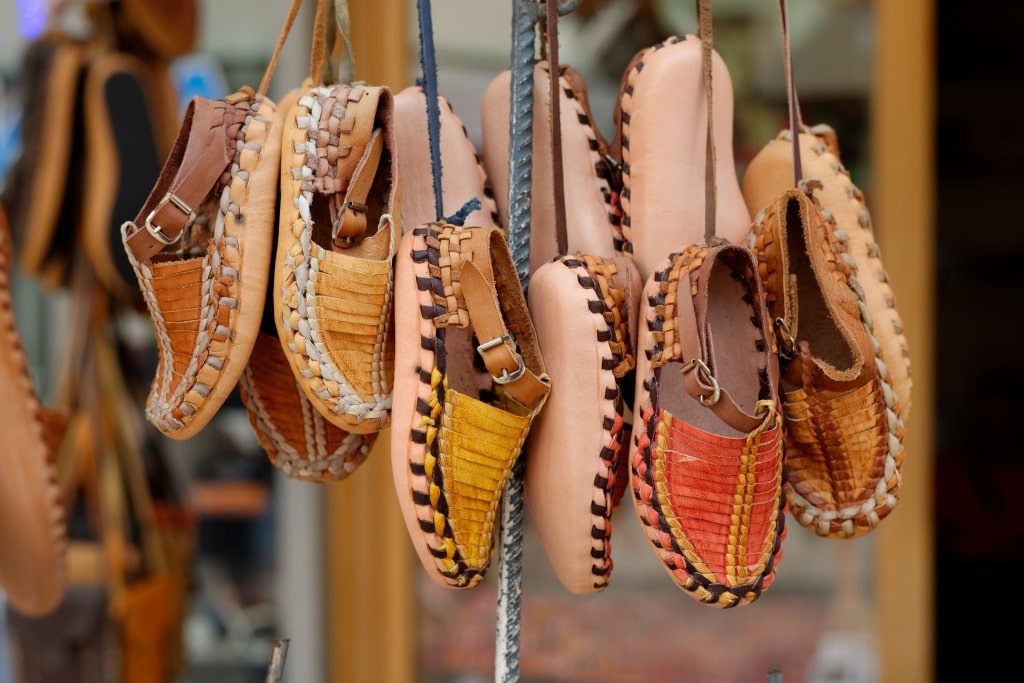
Leather goods
Turkey is one of the world’s largest producers of leather, after Italy, China and India. It has a history of leather-working dating back to at least the 12th century.
Wander the bazaars and markets of Istanbul or Ephesus and you’ll see a tempting choice of leather products. Whether you want a purse, belt, jacket, or suitcase, there’s likely a color and style to suit.
In recent years, the country has worked hard to improve its quality and design standards. From simple artisanal products, Turkish designers have now taken the country’s leather industry into high-end fashion as well.
Pashmina
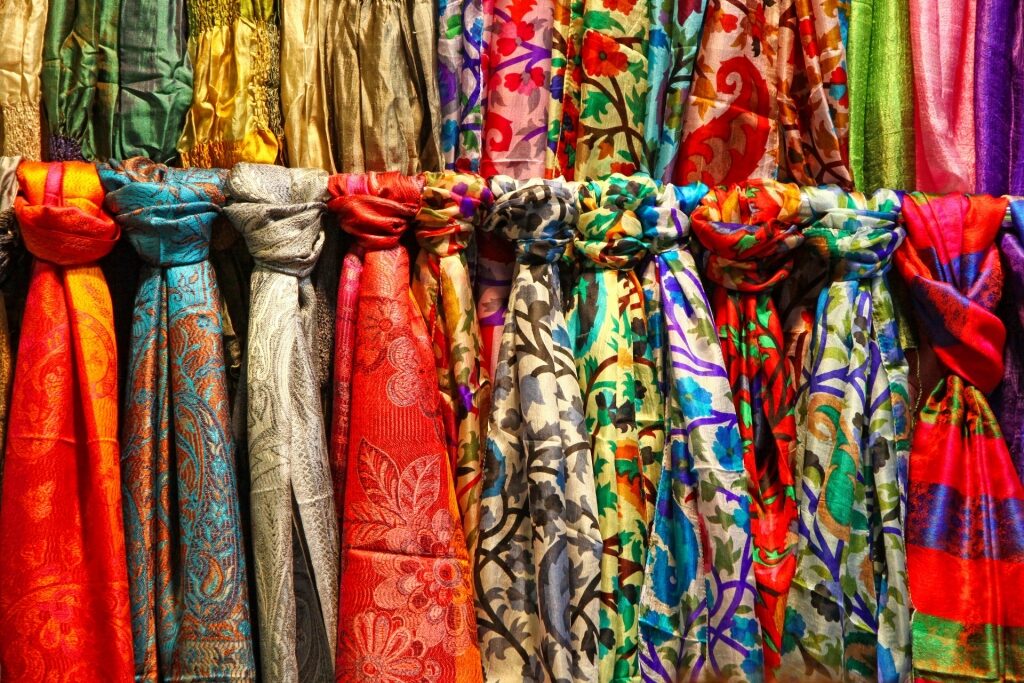
Pashmina
A pashmina scarf is one of the best Turkish souvenirs to bring home. It’s light, colorful, easy to pack, and makes a great gift for anyone, man or woman.
You’ll see pashminas on sale everywhere in Turkey, from shopping areas to market stalls. The difficulty is making sure you find a genuine one; pashmina is the wool from a specific kind of cashmere goat.
Price is one guide; real pashmina is expensive. A handmade piece should show its uneven weave, and pashmina generates no static electricity, unlike those made with artificial fibers.
Honey
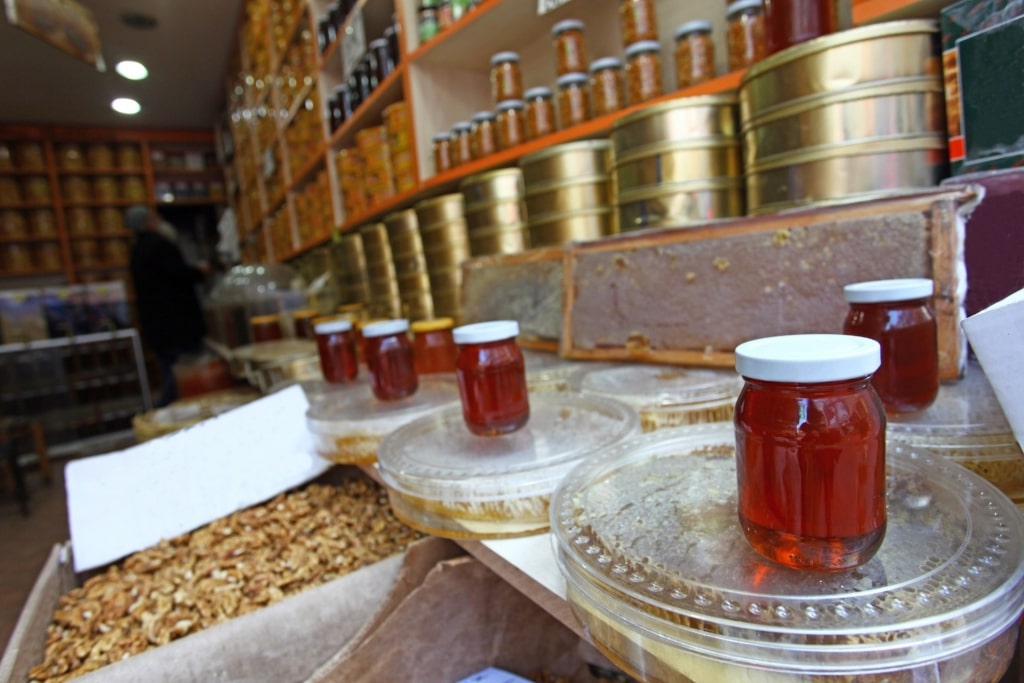
Honey
Turkey is the second largest honey producer in the world after China. If you develop a taste for it, whether in baklava, or poured over yogurt, why not bring some home?
You’ll taste some unusual flavors you might not find elsewhere, in honey from bees that have fed on lavender, carob, or hazelnut. Pine is one of the most unusual, and popular, souvenir honeys.
Make sure the jar remains sealed, and is properly labeled as pure Turkish origin. That will help it easily pass through customs on arrival.
Pistachios
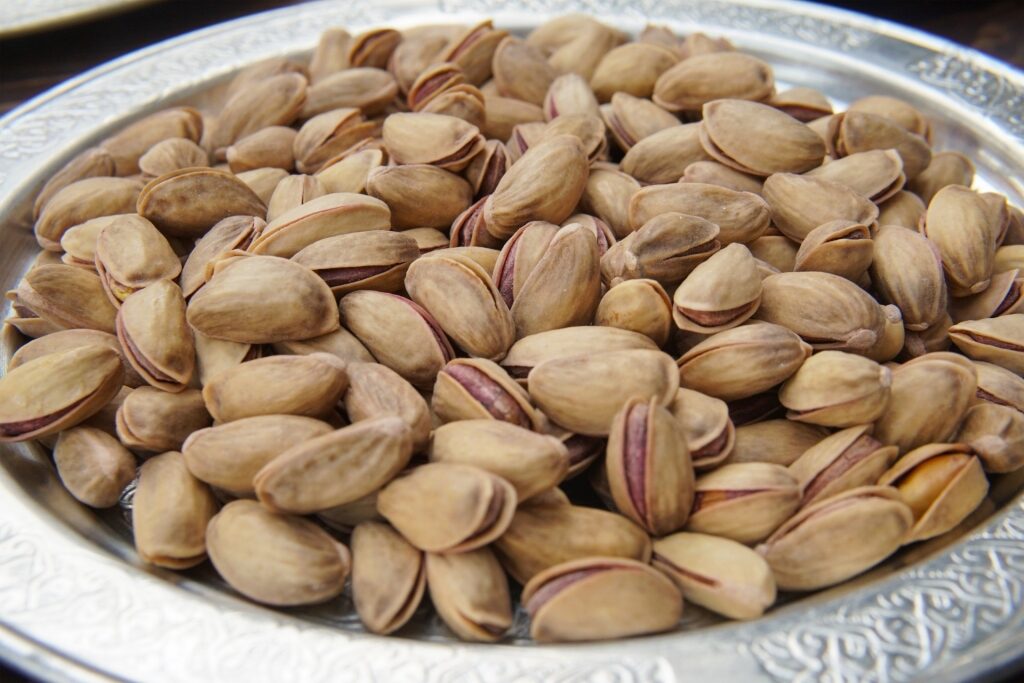
Pistachios
If you don’t have a liking for pistachios before you come to Turkey, you may well develop one. If so, why not take a stash home as a souvenir?
Turkey is a leading producer (and exporter) of pistachios. You’ll find them in everything from baklava to ice cream.
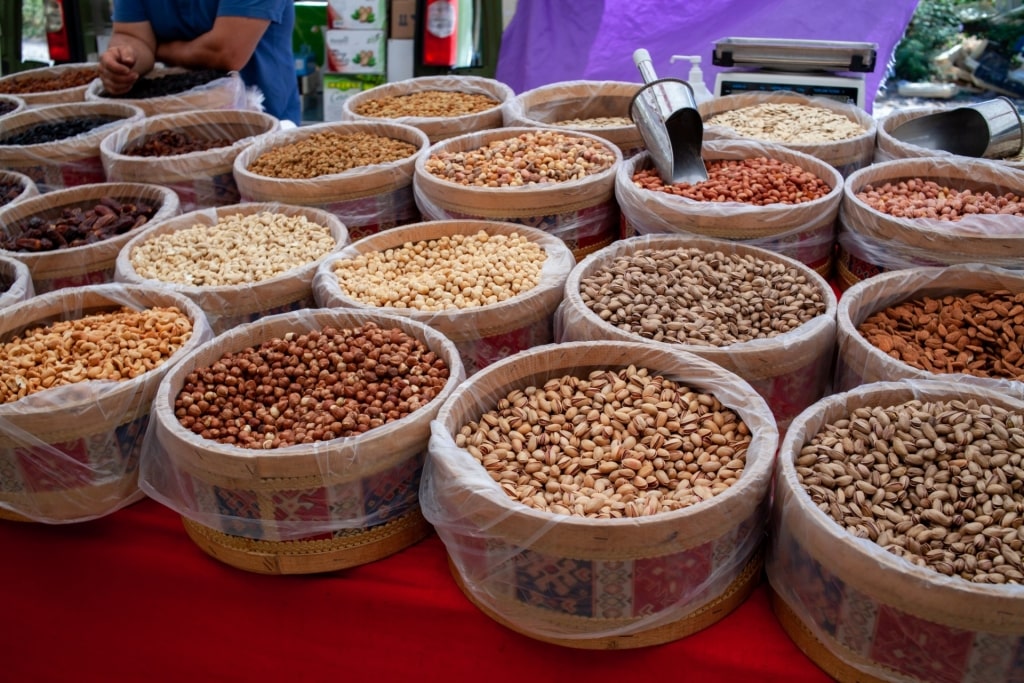
Pistachios
These local nuts are larger, and slightly sweeter, than you usually find elsewhere. Buy them in bulk at the bazaar, or in sealed bags at supermarkets.
Read: Best Beaches In & Around Istanbul
Baklava
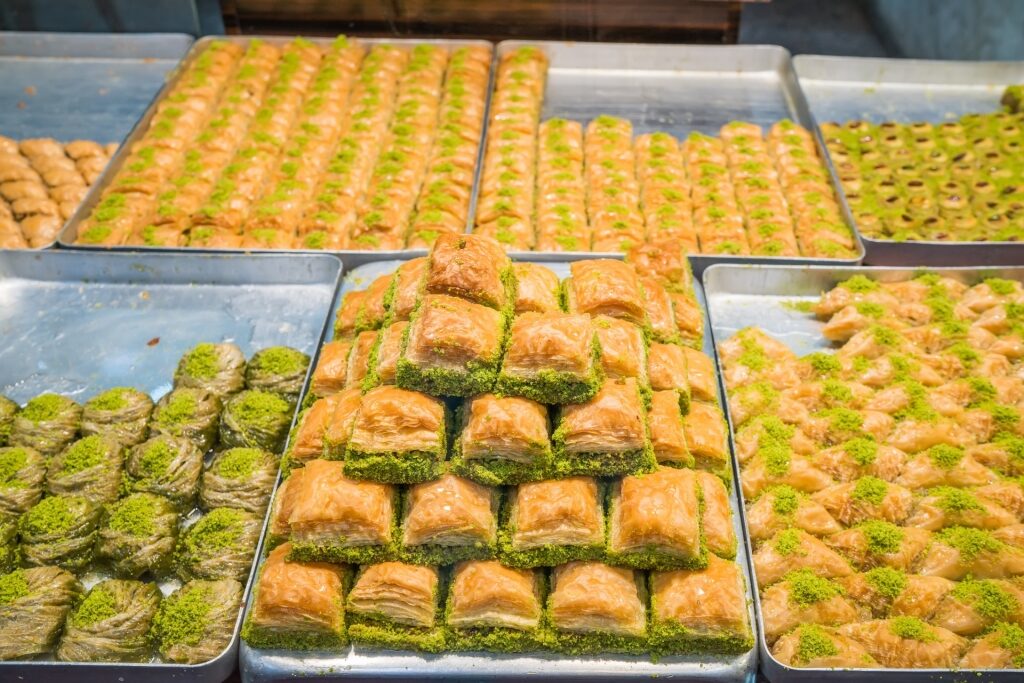
Baklava
Baklava is arguably one of the best desserts in the world, but you don’t have to eat it all at once. Buy some—preferably at a traditional bakery—and you’ll have great souvenir to share with family, friends, or colleagues.
Baklava is made from flaky phyllo (filo) pastry, with chopped nuts, and lots of sugar syrup or honey. Walnut or pistachio are the most popular nut varieties.
Turkey claims to have invented phyllo pastry, even though the word is Greek. Just a tidbit to drop into the conversation as you offer your baklava around.
Olive Oil
Turkey, yet again, is one of the world’s top ten olive oil producers. In fact, Anatolia is where olive oil was first produced about 6,000 years ago.
You can take some of that history home with you in a bottle. You’ll find Turkish olive oil tends to be smoother, and milder in flavor than many others.
That’s because it is usually harvested slightly later in the season, to suit local taste. The obvious exception is oil labeled Erken Hasat (early harvest), which has more of a peppery bite.
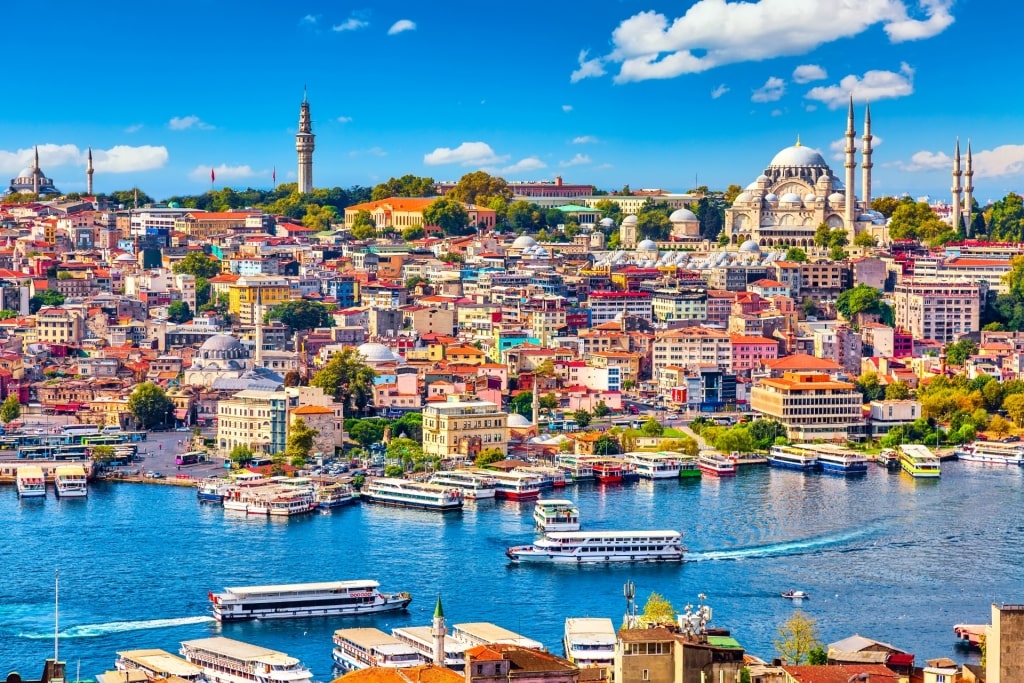
Istanbul
Has this list of the best Turkish souvenirs to bring home given you the urge to visit an exotic bazaar? Browse our cruises to Turkey and be whisked away on an adventure.
